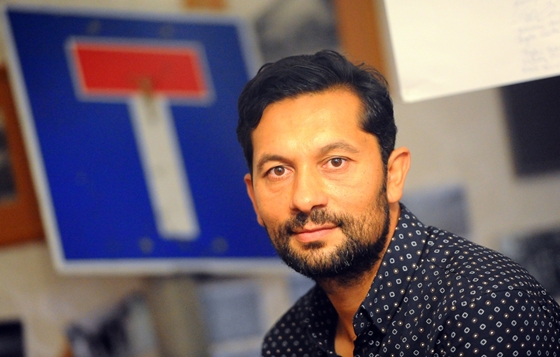A mob of locals kicked and spat at László Bogdán, the mayor of Cserdi, after the community leader suggested that he would welcome those refugee children who were not allowed to vacation in the village of Őcsény a few weeks ago. The news of Mr. Bogdán’s assault first appeared on the Facebook page of a television program called Privátszféra, which runs on the conservative HírTV cable channel. “They spat at him, they kicked him and they threatened his life. Full stop”–writes the journalist affiliated with this program. Judit Péterfi added:
“After the ‘uprising‘ in Őcsény, the mayor of Cserdi suggested that he would be happy to see those refugee families, who were not welcome in the other town. And do you know what happened after this? They wanted to run him over at a cross walk. While he took the local Gypsies under his wings and offered a helping hand to refugees, his own life became endangered. Who will defend him? What’s going on here? Please, open you eyes! I am not angry and I cannot be, because then they will have reached their goal. Nobody should be vengeful or overcome with passion. We must simply not allow for hatred to win more ground and for it to result in physical violence…My only job is to scream: if someone strikes László Bogdán with a stone, he will respond with a loaf of bread. And so will I.”
Of all Roma politicians in Hungary, Mayor Bogdán has perhaps the most street credibility. He is the polar opposite of the corruption and incompetence represented by the likes of Flórián Farkas (Fidesz). But when we has was asked about credibility within the leadership of the Roma community, Mr. Bogdán said:
“It is difficult to determine what is the measure of credibility. I am neither the Dalai Lama, nor am I a Pope Francis…I merely try to offer sober messages and goals, so that people might understand that there is hope, not everything is lost.”
His methods in the village of Cserdi (population: 391 and mostly Roma) are seen as unconventional and maybe even heavy-handed, especially his approach to public safety and the problem of unemployment. But Cserdi has been an example of real solutions and integration of the Roma. Many of the local Roma work in a recently established garden and 3,500 sq. meter greenhouse, guaranteeing healthy, local produce for the community, and where the mayor personally ensures order. If any worker is late, by as little as a couple of minutes, he employs a form of public punishment. This usually involves forcing the offending employee to read a text in front of other workers.
Using public punishment is perhaps a little unusual, but Cserdi has been completely transformed under Mayor Bogdán’s watch. The village has established parks and green areas, a new playground and many of the run-down houses have been renovated. Most recently, he obtained significant funding to help ensure that Roma girls do not drop out of school. “Becoming a grandmother as age 30 or to give birth to your third baby at age 14 has nothing to do with culture,” Mayor Bogdán famously told the Hetek weekly news magazine. The mayor is looking to dedicate more resources to programs aimed at helping girls at risk of dropping out, as well as developing sex ed courses. The mayor has also aimed to motivate Roma teenagers through volunteer opportunities and training programs.
It’s remarkably unfortunate that Mr. Bogdán, who merely offered to extend compassion to refugee families, much like he has worked tirelessly to improve the lot of many in his own community, is now the target of assaults and hate.




